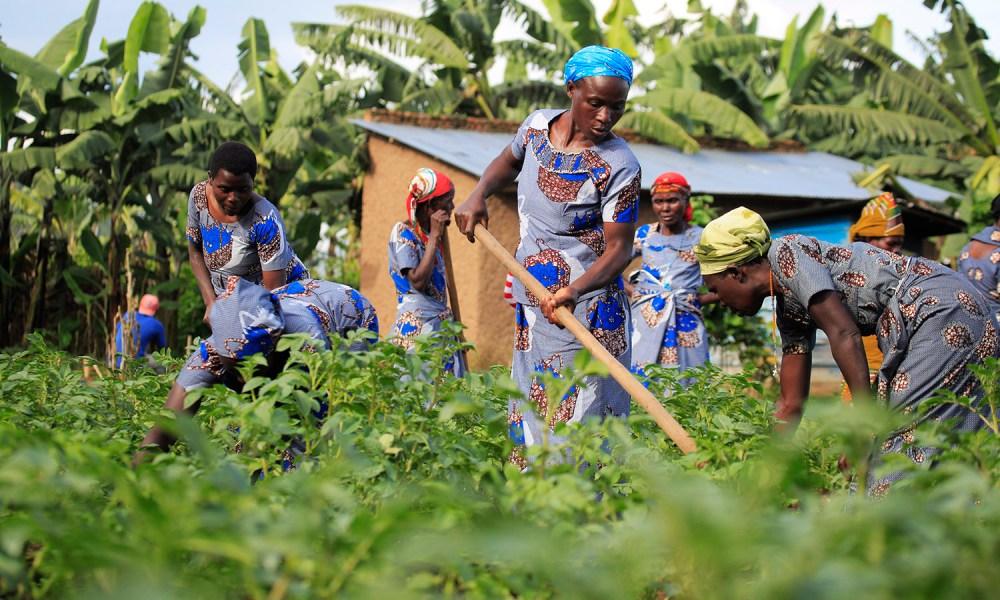Africa-Press – Rwanda. A new study released this Tuesday, December 14, 2021, illustrates upsetting disparities in the value of agricultural produce per unit of cultivated land of female and male farmers.
In Rwanda, the gender gap in agricultural productivity was found to be approximately 12%, meaning that on average, a female-managed farm was 12% less productive than a male-managed one, the study says. The findings presented are part of the UN study in agricultural productivity in Rwanda between female- and male-managed farms.
The assessment also demonstrated that by closing the gender gap in agricultural productivity would result in an increase in GDP of US$418,6 and as many 238,000 people in Rwanda could be lifted out of poverty per year over a 10-year period if gender gaps in agricultural productivity were closed.
The 2017 GDP National Accounts, agriculture contributes 31% of Rwanda’s GDP. It accounts for over 65% of the national labour market force and up to 80% of the female labour force. The 2018 EICV5 shows that 63% of working females are in agriculture- related occupations compared to 43% among working males.
Deeper into the assessment, according to John Mutamba, the lead expert who presented the findings to concerned stakeholders at Lemigo Hotel, “the percentage of people involved exclusively in subsistence agriculture is higher among females than males where 65.7% for females and 53% for males were exclusively engaged in subsistence agriculture (National Gender Statistics Report, 2019, NISR).”
Reasons? Reliance on traditional farming methods, a dependence on rain fed agriculture, farm plots that are too small and scattered to support commercial production and gender inequalities in access to and utilization of inputs and technology.
The study also says 3.5% of female headed households’ land was irrigated in 2016/2017 up from 2.6% in 2013/2014 while that of male headed households, was 7% of their land was irrigated up from 4.4% in the same period.
Indeed, agriculture sector is the leading sector in national economy and contributes to the employment and livelihood of the majority of Rwandans. Even though the Rwandan government is strongly committed to gender equality and equity for equitable and sustainable development, statistics show that there are still a lot of gender inequalities.
The purpose of this assignment, according to Mutamba, was to assess the progress and underlying challenges that affect implementation of the national Gender and Youth Agriculture Strategy.
Mutamba said the assessment was conducted with the overall aim of establishing a baseline against which a more gender-responsive planning, programming, monitoring and reporting and advocacy can be established.
Dr. Jean-Chrysostome Ngabitsinze, Minister of State in the Ministry of Agriculture and Animal Resources (MINAGRI), who presided over the unveiling of the report of the study, acknowledged the gaps identified as indicated in the report. He however said that the government
Fatou Lo, UN Women Representative, who was present at the unveiling of the report, said that the study does not bring out anything new, except a different face of the same challenge that women face around the world and not just Rwanda.
For More News And Analysis About Rwanda Follow Africa-Press






